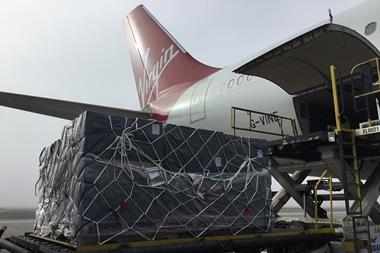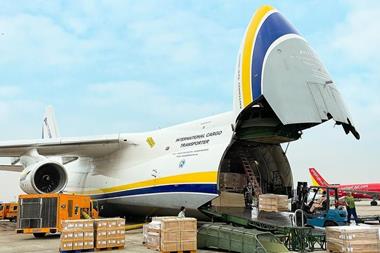
In a world filled with increasing uncertainty, being prepared and agile in saving lives and safeguarding businesses during humanitarian crises is crucial.
Humanitarian crises have become increasingly prevalent in recent years, disrupting global dynamics and causing widespread impacts.
From socio-political unrest to natural disasters and medical emergencies, these crises have resulted in displacement, decreased living standards and even loss of life.
Expert-led emergency relief and humanitarian assistance has been critical to providing safety, security and continuity to governments, businesses and citizens whether through emergency evacuation or the provision of relief materials.
But responding to these changes is not an easy task as situations are often unpredictable and complex, requiring a variety of different responses based on the situation - from sophisticated scenario planning to risk management and expert-led emergency operations.
In all types of humanitarian crises, however, two essential prerequisites stand out: agility and resilience.
The occurrence of natural disasters worldwide demands a timely international effort from emergency relief and humanitarian assistance to save lives and reduce the catastrophic impact.
The effects of climate change are expected to increase the prevalence of natural disasters as sea levels rise, along with flooding, extreme weather and wildfires.
It is imperative that organisations involved in humanitarian response continually develop strategies for faster response and scenario planning to have the most impact.
This can include early warning systems to alert responders to approaching disasters, sophisticated scenario planning for various outcomes, and collaboration and coordination between organisations to enhance the effectiveness of response efforts through efficiency and shared resources.
The recent earthquakes that hit Turkey and Syria underlined the importance of collaboration and fast-acting responses. The disaster triggered an international effort and saw dozens of countries rally to provide aid, including search and rescue teams, financial aid and relief materials.
Air cargo operations played a vital role in the organisation of these efforts, including Air Partner’s cargo division, which sent approximately 200 tonnes of relief material from both India, using A330F aircraft and United Arab Emirates, using B747F aircraft, to help those in need survive the winter.
Delivering humanitarian aid safely and quickly demanded vigilant planning, logistics co-ordination and rapid mobilisation of aircraft and permits.
Tailoring crisis response
The ongoing Russia-Ukraine war has highlighted the global and unexpected threat that can result from socio-political unrest, requiring a comprehensive and expert-led approach to save lives.
Kenyon International Emergency Services, part of the services division at Air Partner, provided first hand support for a client with a large international presence, supporting their employees with comprehensive services to meet their needs after being evacuated from Ukraine.
This included establishing multiple incident centres in Poland to facilitate the evacuation of their employees and families to a temporary place of safety ahead of relocation to a more permanent location.
Kenyon also provided mental health and welfare support for the families due to the nature of the crisis and the unexpected and traumatic circumstances people were in.
For the Afghanistan conflict in 2021, in which the Taliban rapidly took over Afghan territories - culminating in the collapse of the Afghan government, the approach to saving lives required collaboration and immediacy.
The crisis required the largest evacuation effort since the Berlin Airlift in 1948 to evacuate 15,000 US and UK nationals and Afghans and their families who worked with ally governments.
Air Partner’s charter division played a significant role in the emergency response, working with its network of aircraft industry partners to charter flights on behalf of the UK Ministry of Defence.
Their efforts resulted in the safe evacuation of 3,000 passengers from Kabul, using A330-200 and B767-3ER aircraft.
However, operating charter flights in such an unpredictable and volatile environment presented a host of challenges.
The team had to manage constant threats to Kabul airport security and the fast-approaching evacuation deadline required extreme vigilance and maximum efficiency to ensure successful operations.
Despite the obstacles, the team obtained the necessary aircraft permits, addressed the medical needs of passengers and adhered to Covid-19 safety precautions while working within tight aircraft turnaround times.
When we consider medical emergencies such as the Covid-19 pandemic, a multifaceted humanitarian approach is required due to the diverse issues that arise.
For instance, Kenyon was activated in many capacities during the pandemic to support in the recovery, transportation, documentation, and holding of those who lost their lives to Covid-19.
The team developed and implemented robust systems and processes to protect their team as best they could throughout the process, successfully preventing any of the response team from contracting Covid-19.
For those involved in humanitarian crises response, navigating complex situations requires adaptability, preparedness, and agility.
The ability to respond swiftly and effectively saves lives, protects businesses, and ensures continuity in an increasingly uncertain world.
https://www.aircargonews.net/people/van-der-stichele-switches-to-air-partner/















